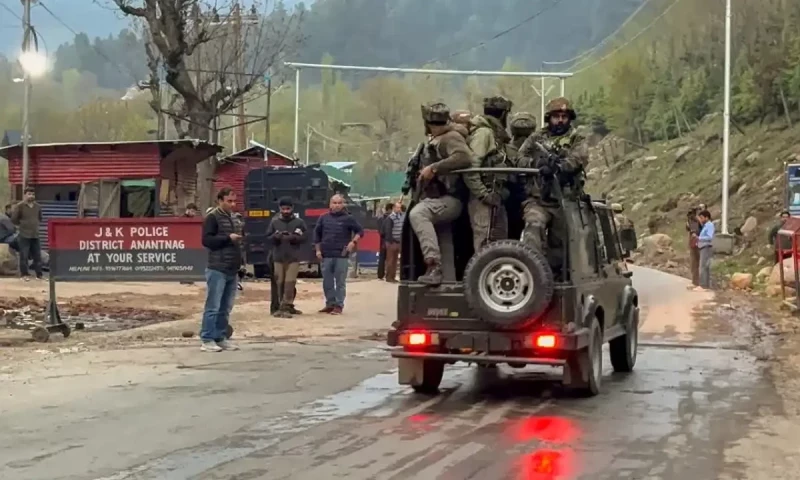Pahalgam Attack
The recently registered First Information Report (FIR) regarding the Pahalgam incident has sparked widespread controversy, raising serious questions about the Indian government’s narrative surrounding the attack.
Labeled by many as a “false flag operation,” the FIR has been criticized for exposing alleged inconsistencies and revealing the possibility of a pre-planned setup orchestrated to serve political objectives.
According to credible security sources, the Pahalgam police station is situated approximately six kilometers from the site of the alleged attack. The FIR claims the assault took place from 1:50 PM to 2:20 PM. Yet, curiously, the report was filed at 2:30 PM—just ten minutes after the event concluded.
Experts argue that such swift documentation, with detailed accusations and narrative framing, could only have been possible if the operation had been planned in advance.
The FIR goes on to blame unidentified “cross-border terrorists” for the incident. It accuses them of indiscriminate firing—directly contradicting multiple reports and media statements that initially described the event as a targeted killing.
The use of vague yet charged language in the FIR, such as “at the behest of foreign masters,” further adds to suspicions that the document was deliberately designed to fuel an anti-Pakistan narrative and divert attention from internal security failures.
In the wake of the Pahalgam incident, a disturbing trend of violence and harassment has emerged across India, particularly targeting Kashmiri students. Reports from Haryana, Uttar Pradesh, Dehradun, and Uttarakhand reveal that Kashmiri youth are being assaulted, intimidated, and, in some cases, evicted from their residences.
In Chandigarh, a student from Kashmir suffered severe injuries after being attacked by a group of Indian students in a private apartment.
These escalating hostilities have caused panic among Kashmiri students enrolled in various educational institutions across India. Many now live in fear, reluctant to attend classes or even leave their accommodations, fearing attacks from extremist groups emboldened by the current atmosphere of hostility.
Reacting to these developments, prominent Kashmiri resistance leader Mirwaiz Umar Farooq condemned the targeted harassment of Kashmiri students. He emphasized the gravity of the situation and urged Indian authorities to take immediate measures to ensure their safety.
He also called attention to disturbing video footage circulating online that shows violent attacks against Kashmiris, demanding swift action to hold perpetrators accountable and prevent further incidents.
The incident and its aftermath have not only deepened mistrust but also intensified concerns about the safety and rights of Kashmiris living in India, further highlighting the growing divide in an already volatile political climate.










